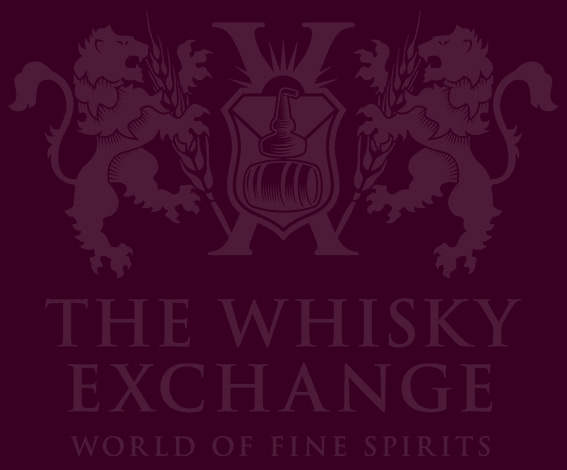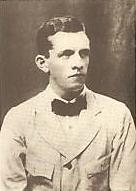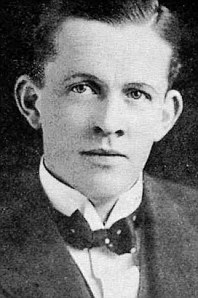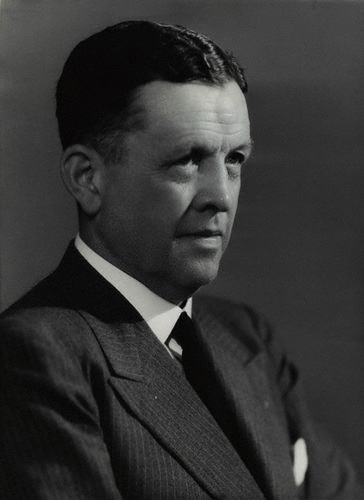Sir Robert Bruce Lockhart was a very interesting man. His book, Scotch: The Whisky of Scotland in Fact and Story, appeared in 1951 when its author was in his sixties and approaching the twilight of a fascinating life.
Lockhart had been born into a family of schoolmasters on his father’s side, and entrepreneurs on his mother’s. His mother’s family, who were Macgregors, owned the Balmenach distillery in Speyside where the young Robert spent many happy childhood summers:
“The distillery [was] our playground… We were allowed to run free from a very early age. The Cromdale burn, then full of lusty trout, ran past the distillery… armed with shilling rods and a tin of worms, we wandered at will, roaming what seemed to us vast distances and flushing snipe from the bogs and grouse from the heather at almost every step.”
After a good education, Lockhart was sent to Malay to help one of his mother’s uncles who was trying to establish a rubber plantation. A previous failed venture in coffee had necessitated converting the distillery into a limited liability company to raise capital but the family retained control at that time.
After an eventful few years, Lockhart returned, having fallen ill with suspected malaria, though it was also speculated that he might have been poisoned by jealous rivals or the family of the beautiful daughter of a local prince whom he had seduced and shacked up with.
After his recovery, Lockhart joined the foreign office and was sent to Moscow, where he played football for a local factory team despite being Vice Consul at the embassy. Then came the Russian Revolution, and Lockhart was forced to leave Moscow.
Three months later, in January 1918, Lockhart was back in the USSR as Prime Minister Lloyd George’s Envoy to the Bolsheviks. Interestingly, he was also working for the secret service, essaying various missions including using diamonds to set up a network of Russian informants and attempting to rescue the imprisoned Tsar Nicholas II.
Lockhart soon fell foul of the Russian authorities and was arrested and imprisoned in the Kremlin later the same year, accused of plotting to kill Lenin. He was later exchanged for the Russian diplomat Maksim Litvinov, who had been arrested for spying in the UK.
Lockhart wrote up his colourful life in his first book, Memoirs of a British Agent, which appeared in 1932 and became an instant smash hit, even being made into a Warner Brothers film in 1934. He has been suggested in some quarters as a guiding inspiration for Ian Fleming’s James Bond. After working in propaganda during WWII and a subsequent spell as a diplomat in the Czech Republic, Lockhart returned to being an author and wrote several more successful books, including Scotch in 1951. Lockhart passed away in 1970, aged 82.
Lockhart’s Scotch was written when its author was in his sixties and had already been famous for nearly two decades. He had never lost his passion for single malt whisky, though, inspired by his fond memories of his youth in Strathspey, which he describes as ‘a paradise’.
Lockhart belongs to the generation of gentleman scholars who wrote about whisky as a pastime, so as you would expect, this is not a book of tasting notes. It’s a deeply personal book, which includes Lockhart’s keenly-observed vignettes of village life in the early chapters:
“On special occasions… almost the whole community used to go what was known locally as ‘on the batter’. Then nearly everyone from the doctors, the staid elders of the kirk, and sometimes a minister, to the humblest farm hand or tinker imbibed freely. Tongues were loosed and stories swapped, and kinsmen gave kinsmen the news of a whole year with the detailed exactitude of men who, in those days of slow transport, lived far apart and saw one another rarely.”
Lockhart’s book is essential for its placing of whisky not just in the history of Scotland but in the fabric of its communities. It is exceptional, too, for its deeply felt sentiment and its sensitive and compassionate tone, as well as a brilliantly understated sense of humour, without ever crossing into mockery.
“Malt whisky was an integral part of Scottish life and entered into its ritual… A laird would consider it a disgrace if at his mother’s funeral his guests were not carried to their beds; a poor crofter would spend or borrow what he could to send the mourners away fully satisfied. Sometimes the wake started before the burial, and in a Highland village less than 70 years ago one lasted for three days until olfactory reasons compelled the mourners to remove the corpse of the departed.”
This is not just a tome of fond-eyed reminiscence, though. There are some detailed and engagingly-written histories of several distilleries and the big five blenders. I particularly enjoyed this passage on the early days of William Grant’s Glenfiddich distillery:
“For the first two years the distillery staff consisted of himself and of his sons…When the Supervisor of the Inland Revenue came to pay his first visit, he found Latin and mathematical textbooks lying all over the distillery. On asking to whom they belonged, he was told that they were the property of the stillman, the malt-man and the tunroom man… later, the stillman became Dr. Alexander Grant, the maltman Dr. George Grant, while the tunroom man, Charles Grant, became owner of Glendronach distillery.”
Lockhart’s diplomatic past had given him a knack for getting to the nub of things and an eye for telling details, as in his neat summation of the stillmen of his day:
“… nearly always a splendid type of man with a sturdy belief in his own art and a scarcely concealed contempt for chemistry.”
After going through his childhood memories of Speyside, the history of Scotch up to the First World War and the whisky-making process in the first part of the book, and dealing with the whisky barons in the second, Lockhart explains the effect of the WWI on the whisky industry, leading to the great consolidation of the 1920s during the time of Prohibition. On Prohibition itself, Lockhart came up with some classic lines:
“Its enactment is one of the most curious episodes in the astonishing history of the American people, who, ever since the Declaration of Independence, have combined rugged individualism with high idealism in a manner frequently baffling to the rest of the world… Never before in history has there been so flaming an example of a bad law defeating its own ends… During Prohibition the American people were making both a sport and a war of drinking with all the concentrated vigour and enthusiasm which they bring to any action they consider at the time to be really serious.”
After a highly entertaining chapter on Prohibition, Lockhart returns to Scotland for a further discussion on whisky’s place and mid-20th century history, including a strong polemic against the fearsome tax increases visited on the industry in the previous century. He signs off his marvellous book with a string of gently amusing, yet telling anecdotes. I won’t spoil them for you, but will instead close with another quote extolling whisky’s place in Scotland herself:
” Throughout the ages whisky has been an integral part of the Celtic civilisation… It was the natural drink of a people who, however poor they might be, had never known servitude and to whom, in the absence of other luxuries, it was indeed the water of life which gave inspiration to their songs and strength to their bodies. It was a noble spirit, a symbol of independence, to be approached with reverence… the Celts have communicated something of this reverence to the whole Scottish nation.”
Entertaining, informative and wonderfully elegantly-written, Scotch: The Whisky of Scotland in Fact and Story is one of the most inspiring books on the subject of whisky ever published. Reading Sir Robert Bruce Lockhart’s stirring prose with a glass in hand is surely one of the greatest pleasures any malt fan of literary bent can have.










 Enjoy responsibly
Enjoy responsibly
Comments
#Whisky Classic Book Reviews: Scotch by Sir Robert Bruce Lockhart: Sir Robert Bruce Lockhart was a very intere… http://t.co/FshSCAgYBw
RT @TWEBlog: New blog post – @TimFFS enjoys Scotch by Sir Robert Bruce Lockhart: … http://t.co/nriMVhgB6o
@domu888 Classic Book Reviews: Scotch by Sir Robert Bruce Lockhart: Sir Robert Bruce Lockhart was a very inter… http://t.co/EpMPQuCnw2
The Whisky Exchange “Classic Book Reviews: Scotch by Sir Robert Bruce… http://t.co/zyLhvHOnMt @TWEblog
RT @TWEBlog: New blog post – @TimFFS enjoys Scotch by Sir Robert Bruce Lockhart: … http://t.co/nriMVhgB6o
RT @TWEBlog: New blog post – @TimFFS enjoys Scotch by Sir Robert Bruce Lockhart: … http://t.co/nriMVhgB6o
RT @malthound: The Whisky Exchange “Classic Book Reviews: Scotch by Sir Robert Bruce… http://t.co/zyLhvHOnMt @TWEblog